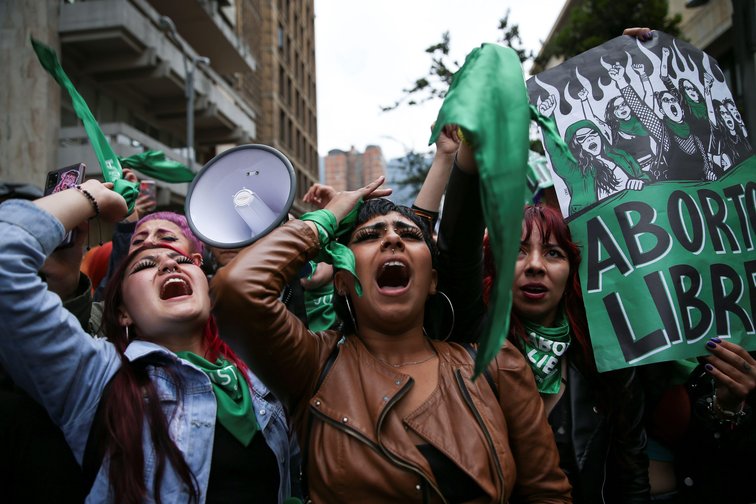“Unwanted pregnancies contribute to school drop-outs, domestic abuse, financial abuse and emotional abuse perpetrated by men, boys and family members,” said Chanelle Beatrice, a feminist from Trinidad and Tobago who is part of Feminitt Caribbean, an NGO dedicated to advancing gender justice in the Caribbean.
“The inaccessibility of legal abortions also contributes to infertility, unemployment, child abuse, mental health illnesses and death,” Beatrice added.
Laws are not enough
Even in countries that have moved towards more progressive sexual and reproductive legislation in the past decade, feminists activists need to remain vigilant about protecting bodily autonomy and gender equality. Policies are not enough to ensure acceptability, access and quality of abortion care.
Argentina is among those countries that must resist and safeguard its hard-won rights. After decades of struggle, feminists succeeded in legalising abortion up to week 14 in December 2020.
It was a huge victory at the time – but now, in light of the new, more progressive rules in Colombia, Argentina’s 14-week time frame seems too short. And two years on, the implementation of its abortion law is uneven, varying greatly across social, cultural, economic and even geographical backgrounds.
“We know that even if we win sometimes… the main challenge that we have and will continue to have in Argentina and in the rest of the countries of the world, is to sustain the progress that we have made with public policies,” said Carino from Fós Feminista.
Ana Cristina González, a physician, feminist activist and spokesperson for Colombia’s Just Cause, agrees. “We need to create an environment of legitimacy for women's decisions… the possible future [for the abortion fight] is to sustain this decision, to ensure that it takes root among more and more people in the healthcare services, and among citizens,” she told openDemocracy.
“We are facing a big cultural battle, We must show, in a sensible way, the reasons [for abortion] and have a debate. People can be transformed,” she added.
Sexual and reproductive rights advocates in Uruguay – the first South American country to legalise abortion (up to 12 weeks), in 2012 – stress the importance of safeguarding women’s rights.
Over the past decade, they have been monitoring the law’s implementation and denouncing barriers to abortion access. As they explained recently, access is a particular problem in rural areas, where health centres are few and far between and medical personnel refuse to perform abortions on grounds of conscientious objection.
Quality of care also varies, and information and evaluation are inadequate, say activists.
In 2020, Uruguay elected its first conservative government in 15 years. Shortly after taking office, President Luis Lacalle Pou said the government has a “pro-life agenda”. Since then, “resisting has become a heroic act” for abortion activists, according to Lilián Abracinskas, the founder of the feminist organisation, Women and Health in Uruguay.
Abracinskas said that people in government “relativise the concept of human rights, of gender violence [and consider] feminists and sexual diversity as external destabilising agents influenced by foreign forces.”
“We are resisting in absolutely adverse conditions, and off the radar of regional and international organisations and interests,” she emphasised.
Too much, too quickly?
Earlier in 2022, when Colombia was decriminalising abortion, Chile was drafting a new constitution that enshrined sexual and reproductive rights, including the right to abortion, as fundamental and guaranteed by the state.
But at a national referendum in September, the country voted against accepting the new constitution. The decision means the 2017 law that allows abortion only in cases of rape, foetal inviability or risk to a woman’s life, remains in force.
Meanwhile, Brazil’s dramatic October election pitted the far-right incumbent Jair Bolsonaro against the leftist ex-president, Luiz Inácio Lula da Silva. During the campaign, Lula decided to remind conservative voters sympathetic to his candidacy of his anti-abortion stance. He won, and was inaugurated as Brazilian president on 1 January.
“The biggest challenge for feminist movements is to join forces, and have a clear strategy for preventing a reversal of the progress made in our countries,” Ana María Kudelka Zalles, the director of feminist NGO Catholics for the Right to Decide Bolivia, told openDemocracy.
“But we also need to win and captivate through much more innovative communication actions that really reach the entire population.”



Comments
We encourage anyone to comment, please consult the oD commenting guidelines if you have any questions.